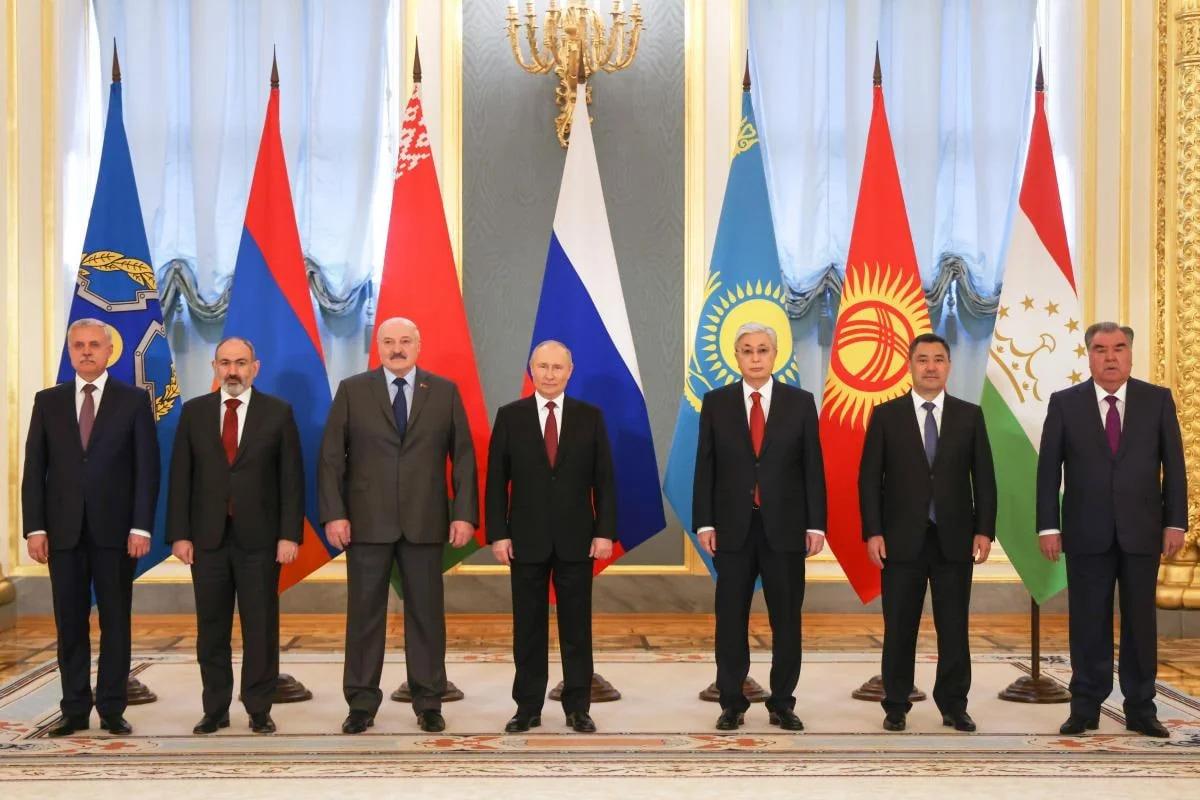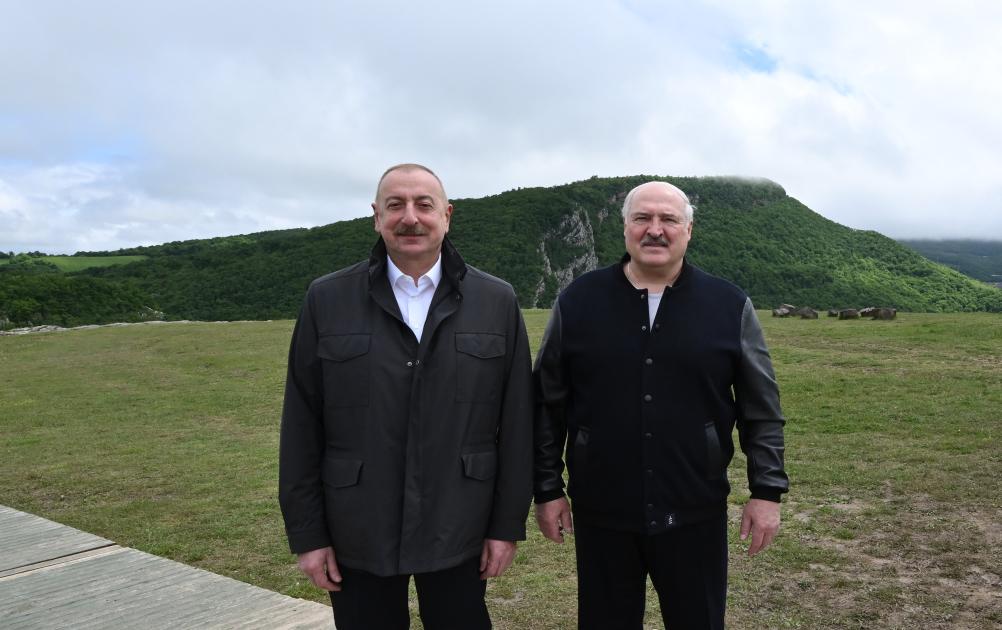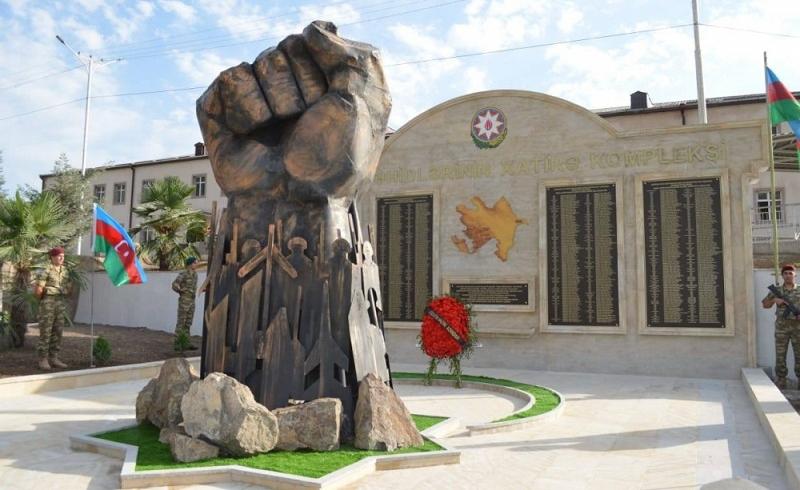Lukashenka's Azerbaijan visit highlights Aliyev's role in South Caucasus security In charge of South Caucasus
The recent visit of Belarusian President Alyaksandr Lukashenka to Azerbaijan, during which he toured the liberated cities of Fuzuli and Shusha, has sparked significant reactions in Yerevan and beyond. Lukashenka’s statements, emphasizing Azerbaijan's increasing responsibility for the security of the South Caucasus under President Ilham Aliyev, have reverberated throughout the region, underscoring the shifting dynamics in this strategically important area.
Lukashenka's visit and comments reflect a high regard for President Aliyev’s leadership. His assertion that "you are already responsible not only for Azerbaijan; you are already responsible for the situation in the Caucasus as a whole," points to an acknowledgment from Belarus - and by extension, Russia - of Azerbaijan's leading role in regional security. This recognition is particularly significant given Lukashenka's close ties with Russian President Vladimir Putin and his alignment with Russian geopolitical interests.
Implications for Armenia & Georgia
The unfolding developments in the region and the visit of the Belarus president have triggered significant concern and jealousy in Armenia, a member of the Collective Security Treaty Organization (CSTO) alongside Belarus and Russia. Armenia perceives Lukashenka's statements not merely as Minsk’s official stance but as a reflection of the Kremlin's strategic vision.

Moscow frequently utilizes Lukashenka as a proxy to communicate sensitive or potentially controversial positions, allowing Russia to test reactions and gauge the international response without directly involving itself. This method of indirect communication enables the Kremlin to avoid provoking sharp reactions from various domestic and international audiences, thereby maintaining a degree of plausible deniability and diplomatic flexibility.
On the other hand, Armenia's concern stems from the implication that Azerbaijan's enhanced role in regional security, endorsed by both Belarus and implicitly by Russia, could further marginalize Yerevan within the CSTO framework. Recognizing Azerbaijan as a primary security guarantor in the South Caucasus challenges Armenia’s traditional security reliance on the CSTO, particularly on Russia. The shift underscores a potential reconfiguration of alliances and power dynamics in the region, suggesting that Armenia might need to reconsider its strategic and diplomatic positions.
The jealousy in Yerevan is fueled by the acknowledgment of Azerbaijan's growing influence and the endorsement of Ilham Aliyev's leadership by influential CSTO members. This development suggests that Armenia's influence within the organization is waning, while Azerbaijan's role is being elevated. Consequently, Armenia faces the dilemma of aligning its policies with the broader CSTO strategy, which now appears to favor Azerbaijan's leadership in maintaining regional stability or seeking alternative alliances that might not align with CSTO interests.
Alternatively, the unfolding developments and statements imply that the behaviors of Armenia and Georgia must align with the broader interests of the South Caucasus, as deviations could pose threats not only to Azerbaijan but to regional stability as a whole.
For Georgia, this could mean navigating its relationship with Azerbaijan carefully to ensure regional cooperation. The implication is clear: regional states should prioritize collective security and stability over external alliances that may conflict with the interests of the South Caucasus.
Strategic diplomatic relations
President Ilham Aliyev’s diplomatic finesse is evident in his ability to maintain strong relations with Russia while asserting Azerbaijan's regional leadership. His relationship with Putin, characterized by mutual respect and strategic cooperation, has been crucial in securing Russian support. This support has been vital in ensuring stability in the South Caucasus, despite the complex and often volatile political environment.
Lukashenka’s statements are an endorsement of Aliyev’s leadership and a reflection of broader CSTO support for Azerbaijan’s role. This endorsement from Belarus, a country closely allied with Russia, indicates a consensus within the bloc regarding Azerbaijan's pivotal role in regional security.

President Ilham Aliyev has repeatedly emphasized the importance of regional cooperation and the need for bilateral negotiations without external mediators. His vision for a stable and secure South Caucasus is embodied in initiatives like the 3+3 format, which includes three South Caucasus countries (Azerbaijan, Armenia, and Georgia) and three neighboring powers (Russia, Turkey, and Iran). This format aims to foster peace and cooperation, presenting a united front that can address regional challenges more effectively.
Reconstruction of devastated Karabakh & regional development
Belarus’s commitment to participate in the reconstruction of the liberated territories, planning to build a 412-family settlement, is a tangible expression of support. This collaboration not only aids in the rehabilitation of war-torn areas but also strengthens bilateral ties between Azerbaijan and Belarus. It further solidifies Azerbaijan’s role as the leader in regional reconstruction efforts.
Additionally, other nations are stepping up to support the reconstruction of Karabakh, which was severely damaged during nearly 30 years of Armenian occupation. Uzbekistan has already built a school complex in Fuzuli, showcasing its commitment to aiding in the region's educational and infrastructural development. Similarly, Kazakhstan has commissioned a school complex, expressing a strong interest in participating in the reconstruction efforts, indicating a broader regional and international support network rallying behind Azerbaijan’s vision for a revitalized Karabakh.

These contributions from Uzbekistan, Kazakhstan, and potentially other nations highlight the international community's recognition of Azerbaijan’s leadership and their willingness to invest in the region’s stability and development. The reconstruction of Karabakh not only represents a physical rebuilding but also a symbolic gesture of unity and support for Azerbaijan’s sovereignty and regional security efforts.
Conclusion
Lukashenka’s visit and statements underscore a significant shift in the South Caucasus’s geopolitical landscape, with Azerbaijan under President Ilham Aliyev emerging as a key player in regional security. Ilham Aliyev’s leadership, marked by strategic diplomacy and efforts to foster stability, is increasingly recognized and supported by regional powers like Belarus and Russia. This recognition not only bolsters Azerbaijan’s position but also calls for a recalibration of strategies by neighboring states like Armenia and Georgia to align with the collective interests of the South Caucasus.
As Azerbaijan continues its efforts to rebuild and stabilize the region, Aliyev’s role as a unifying and stabilizing force will be crucial in shaping the future of the South Caucasus, ensuring peace, security, and development in this strategically vital area.








